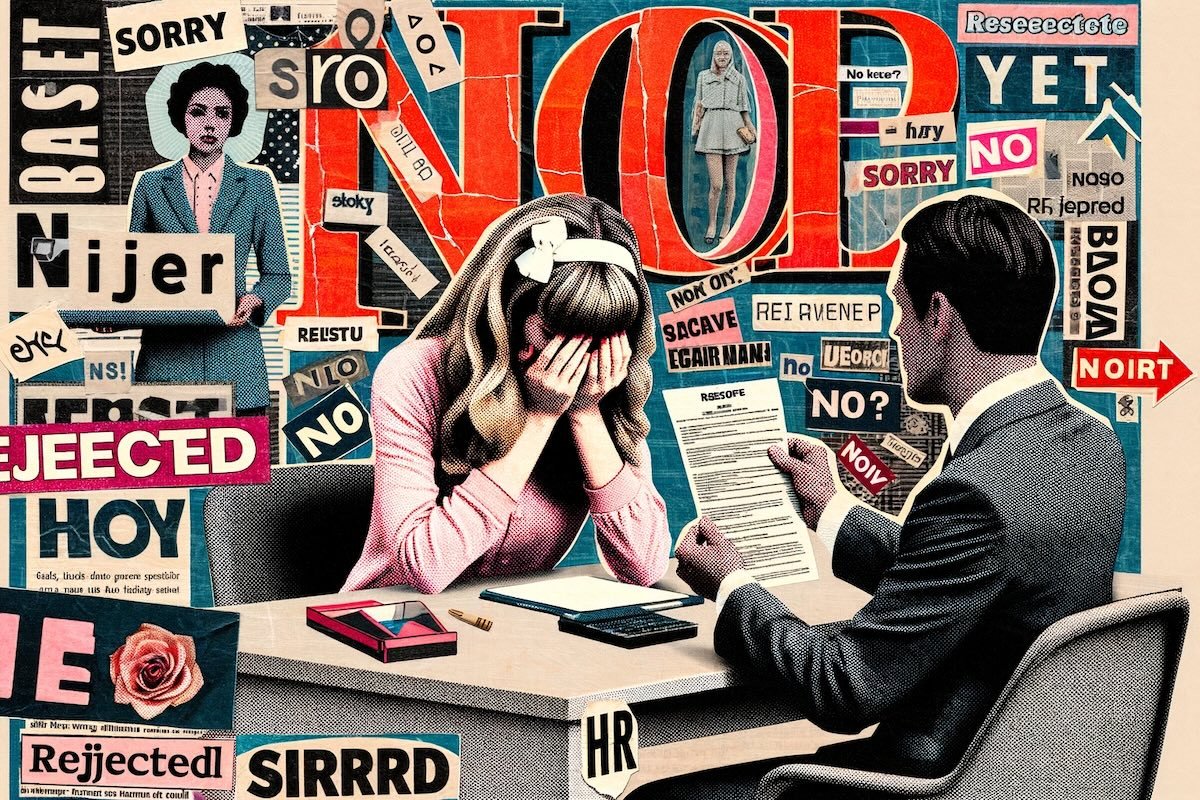So, what is your greatest accomplishment?
In this article, we are tackling this prompt: "What is your greatest personal achievement?" Another way this might get asked is for you to share your proudest accomplishments, to discuss
a goal you completed, or to share the most impressive thing you've done at work lately.
No big deal, right?! Except—most of us can't remember what we ate for lunch let alone our top, top, topppp moments at work.
For starters, we want to keep your answer about work. Make sure your achievements match the job at hand. Your new mortgage might be a huge accomplishment for you personally, but what does it have to do with the digital content director role? Probably nothing. Make sure your achievements match the skills and experience needed.
Finally, when answering this question, use a show-and-tell approach. Instead of simply saying "I increased sales by 600 percent in one year," describe how you did it.
Why Interviewers Ask This Question
It can be helpful to answer a question if you know why it's being asked in the first place. Recruiters and hiring managers ask this question to hear real examples of your work.
More importantly, they want to learn about your successful projects, the details around them, and how you personally got to the finish line.
With this question, they can learn about your work ethic, values, personality, and skills. Did you have to learn to code in order to launch that eCommerce website for your client?
As we mentioned above, interviewers know that people like to share high-level results—like increasing by X%—but with this question, they get to learn the who, what, why, how, when, and where.
What Not to Say
Before discussing how to answer, here are a few things you might not want to say.
Even if you are the greatest
problem-solver to ever walk through the swinging office doors at your last organization, do not use this as an opportunity to disparage or neg your former coworkers or organization. If you did solve big problems, describe your accomplishments, but
leave any negativity behind. And don't share something you can't back up. If you share that you landed a big client for the firm but then struggle to answer any
follow-up questions, this will cause confusion (at minimum). Worst-case scenario, it will look like you're lying.
How to Answer "What Is Your Greatest Personal Achievement?" in an interview
Here's your moment. Before getting to the interview, be ready with a few great achievement stories. If you'd like, learn more about
building story circles and then toggle back to this advice.
For this specific question, we have a three-pronged piece of advice. Here it is.
- Be Honest
- Be Specific
- Be Relevant
Let's dive deeper into each of these.
Be Honest
A difficult part of answering behavioral interview questions for many of us is talking about ourselves on repeat. It can be challenging to feel like you're boasting or bragging too much. However, this is a situation—and an opportunity—for you to go for the gold.
Be honest when describing your greatest achievements. Take your credit and be proud.
However, this advice also works the other way. Just like you shouldn't lie on
your resume, don't stretch the truth in answering these types of questions. If you ever get caught in an embellishment mid-interview, it's uncomfortable, to say the least.
Be Specific
The interview can be a nerve-wracking experience. This question can be particularly difficult to answer when it's the first one—and you haven't quite shaken off your nerves.
When you're nervous, you tend to want to blurt out your answer and get it over with. Avoid doing this by preparing your answer beforehand (which is what we're doing right now!). When you choose your accomplishment, make sure to have two or three reasons as to why it was such an amazing feat.
For example: Say you increased sales by 600 percent in your last organization. First of all, wow. You're amazing. But how did you do it? Where did you notice an inefficiency? What steps did you take to achieve this accomplishment? Lay it all out—step by step.
Be Relevant
Make sure that your accomplishments are work-related or that they directly relate to the job for which you are interviewing. If you recently finished a degree that relates to the job—and you also completed an amazing thesis—talk about that.
When preparing these interview answers, run them through relevancy filters. How does this answer relate to the job? How does this answer prove that I can do the job? How does this answer show that I am a creative candidate? How does this answer demonstrate my unique skill sets?
Once you consider your list of accomplishments and run it through the above steps, prep your interview answer by using the STAR method. This stands for situation, task, approach, and result.
The STAR Method + Example Answers
Using the popular STAR method will help you share a concise, clear, and impressive answer. Here's how it works:
Situation
Start by sharing the situation surrounding your accomplishment. What's the context or background that led to it? What issue was the company, team, or client having?
Example:
I was brought on to my current role to help create inbound marketing leads. Over the year, the company had lost clients. While they had a paid marketing team, they were looking for something who could increase sales leads without paid ads.
Task
This describes your role in the situation. What tasks were you in charge of? What role did you play in solving the problem?
Example:
The company had a unique niche—pool supplies and installers—and I knew that people probably did online research before they installed a pool. So, I decided to start a blog. Using SEO, I wrote about pool topics that had the highest search volume. I spent three months learning about SEO, choosing a keyword search product, and building a blog section on the company's current website with a freelance developer.
Approach
Now you want to share your approach—the steps you took to complete the tasks. Do your best to tie any of the skills or examples you share back to the job description.
Example:
I set a goal to write 50 new blog posts in the next three months that covered keyword terms I felt confident we could rank for. I also ensured that every blog post included an opt-in form for readers to share their contact info and learn more about our services. Those opt-in forms are fed directly into our CRM for the sales team. This meant the sales team would consistently collect warm leads with people they knew were considering a pool installation.
Result
Time to wow them by sharing the end result. What happened because of your great work? Own the results!
Example:
Within six months after launching the blog, I'm happy to report that we sold $300,000 worth of pools and pool supplies just from the sales leads the blog brought in. The cost for setup, blog posts, and a few software programs was $15,000, not including my salary. I'd say we're making great progress with using content marketing.
Sample Answers to "What's Your Greatest Achievement?" Interview Question
Example 1: Entry-Level
"My greatest professional achievement was completing my bachelor’s in sports marketing in four years with a 4.0 GPA. I had no financial support and worked full-time at the same on-campus job throughout my education. This taught me valuable time management skills, customer service, personal financing knowledge, and important professional habits like commitment and dedication. I’m proud of being a recent graduate, and I feel that what I learned will give me an advantage in my career now and in my first full-time job."
Example 2: Re-Entering Workforce
"Most recently, I was working as a full-time parent managing the schedules of three active elementary-school kids, running my household, managing all our finances, and learning Adobe Design programs so I could eventually pursue my dream to work in interior design. Most recently, my partner needed to be on assignment for a month in another state, which left me potentially needing to put my classes on pause.
As a natural problem-solver, I created a carpool and after-school play schedule with some other moms on our block. This allowed me to have three mornings a week to finish my classes, create a portfolio, and apply to this role while I managed six kids in the afternoon for the other mom. My partner is back now, but it taught me teamwork, problem-solving, adaptability, and creativity, which are all great skills for not only your next designer but next employee."
Example 3: Experienced
"My biggest achievement was turning around the success of my last company's Human Resources department. When I joined, the company did not have an HR department. They were struggling with hiring, managing employee benefits, and training. They also ranked low in employee satisfaction surveys. I started by getting the company into one HR software program, Workday, which allowed us to seamlessly communicate, create job descriptions, extend offers, let employees sign up and manage benefits, etc.
I also worked with management to create a formal review process with more transparency around the organization's structure. I now run a team of five, and we've helped grow the company by 85 headcounts in the last year. This additional support would not have been possible without a formal HR department with specialists, and I'm happy to share the employee survey show they are satisfied as well!"











